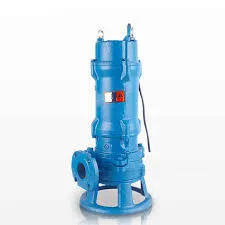Bosnian
- Afrikaans
- Albanian
- Amharic
- Arabic
- Armenian
- Azerbaijani
- Basque
- Belarusian
- Bengali
- Bosnian
- Bulgarian
- Catalan
- Cebuano
- Corsican
- Croatian
- Czech
- Danish
- Dutch
- English
- Esperanto
- Estonian
- Finnish
- French
- Frisian
- Galician
- Georgian
- German
- Greek
- Gujarati
- Haitian Creole
- hausa
- hawaiian
- Hebrew
- Hindi
- Miao
- Hungarian
- Icelandic
- igbo
- Indonesian
- irish
- Italian
- Japanese
- Javanese
- Kannada
- kazakh
- Khmer
- Rwandese
- Korean
- Kurdish
- Kyrgyz
- Lao
- Latin
- Latvian
- Lithuanian
- Luxembourgish
- Macedonian
- Malgashi
- Malay
- Malayalam
- Maltese
- Maori
- Marathi
- Mongolian
- Myanmar
- Nepali
- Norwegian
- Norwegian
- Occitan
- Pashto
- Persian
- Polish
- Portuguese
- Punjabi
- Romanian
- Russian
- Samoan
- Scottish Gaelic
- Serbian
- Sesotho
- Shona
- Sindhi
- Sinhala
- Slovak
- Slovenian
- Somali
- Spanish
- Sundanese
- Swahili
- Swedish
- Tagalog
- Tajik
- Tamil
- Tatar
- Telugu
- Thai
- Turkish
- Turkmen
- Ukrainian
- Urdu
- Uighur
- Uzbek
- Vietnamese
- Welsh
- Bantu
- Yiddish
- Yoruba
- Zulu
Telephone: +86 13120555503
Email: frank@cypump.com
aug . 07, 2024 19:20 Back to list
Finding Reliable Sources for Clear Water Supply and Quality Assurance Solutions
The Importance of Clear Water Suppliers
Access to clean and safe water is fundamental to human health, environmental sustainability, and overall quality of life. As globalization progresses and urbanization expands, ensuring that communities have a reliable supply of clear water becomes increasingly vital. Clear water suppliers play a crucial role in meeting this demand, providing not only the resource itself but also elevating standards of public health and hygiene.
Understanding Clear Water Suppliers
Clear water suppliers can range from large municipal water systems to smaller private companies and local initiatives. These suppliers ensure that water is adequately treated, purifying it of contaminants and harmful pathogens. The process often involves meticulous testing and treatment methods, including filtration, chlorination, and other advanced technologies. Ensuring the clarity and safety of water is no small feat, as water sources can be vulnerable to pollution from industrial runoff, agricultural practices, and inadequate waste management.
The Health Implications
The implications of having access to clear water are profound. Water-borne diseases, which are often resultant from contaminated water supplies, remain a significant health risk in many parts of the world. According to the World Health Organization (WHO), millions of deaths occur each year due to diseases related to poor water quality, including cholera and dysentery. Clear water suppliers, by offering treated and safe options, drastically reduce these risks and contribute to the improvement of community health outcomes.
Beyond immediate health benefits, clear water also plays an essential role in promoting long-term wellness. Access to clean water supports proper sanitation practices, which are essential for preventing diseases. Moreover, when communities thrive with healthy citizens, they experience reduced healthcare costs and improved productivity.
Environmental Considerations
clear water supplier

Clear water suppliers are also essential for maintaining ecological balances. Sustainable water management practices can lead to the conservation of local water resources, thereby protecting aquatic ecosystems. Suppliers engaged in responsible sourcing and treatment of water invest in technology that minimizes environmental impact, such as water recycling systems and renewable energy sources.
As climate change continues to alter precipitation patterns and water availability, clear water suppliers face new challenges. They must innovate and adapt by utilizing advanced technologies, such as desalination and rainwater harvesting, to secure sufficient water supplies that meet community needs without depleting natural resources. Collaboration between suppliers, governments, and environmental organizations is crucial in developing strategies that ensure sustainable access to clear water sources.
Future Innovations
The future of clear water supply is bright, thanks to ongoing research and development in water treatment technologies. For instance, the integration of smart technologies can lead to more efficient management of water distribution systems, detecting leaks and contamination in real time. Public awareness and education about water conservation practices also play a pivotal role in supporting suppliers who navigate the complexities of providing clear water.
Additionally, advocating for policies that protect water quality at the source is essential. This involves regulating industrial discharges, promoting sustainable agricultural practices, and ensuring that local governments invest in the infrastructure necessary for clean water delivery.
Conclusion
Clear water suppliers are at the heart of public health and environmental sustainability. Their role cannot be underestimated in a world where clean water is increasingly scarce. As we advance into a future that prioritizes health, sustainability, and quality of life, the importance of supporting and enhancing clear water suppliers will remain paramount. Through innovation, collaboration, and education, we can help ensure that everyone has access to this essential resource, paving the way for healthier populations and thriving ecosystems.
-
Horizontal Split Case Pump with GPT-4 Turbo | High Efficiency
NewsAug.01,2025
-
ISG Series Pipeline Pump - Chi Yuan Pumps | High Efficiency, Durable Design
NewsAug.01,2025
-
Advanced Flue Gas Desulfurization Pump with GPT-4 Turbo | Durable & Efficient
NewsJul.31,2025
-
ISG Series Vertical Pipeline Pump - Chi Yuan Pumps | Advanced Hydraulic Design&Durable Construction
NewsJul.31,2025
-
ISG Series Vertical Pipeline Pump - Chi Yuan Pumps | Energy Efficient & Low Noise
NewsJul.31,2025
-
pipeline pump - Chi Yuan Pumps Co., LTD.|High Efficiency&Low Noise
NewsJul.31,2025










